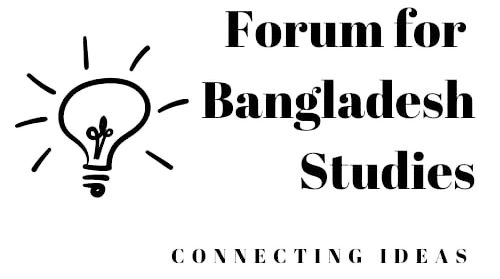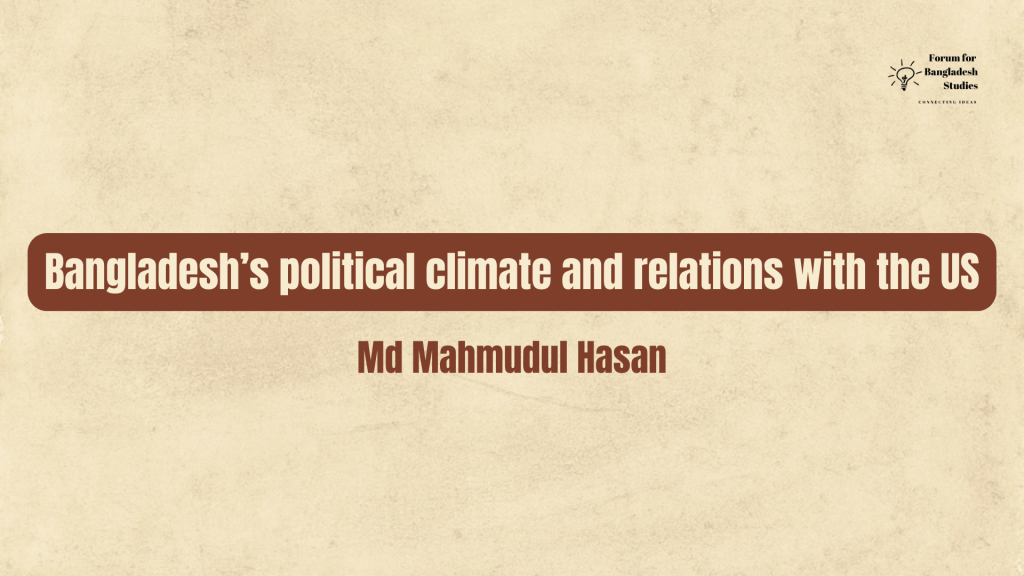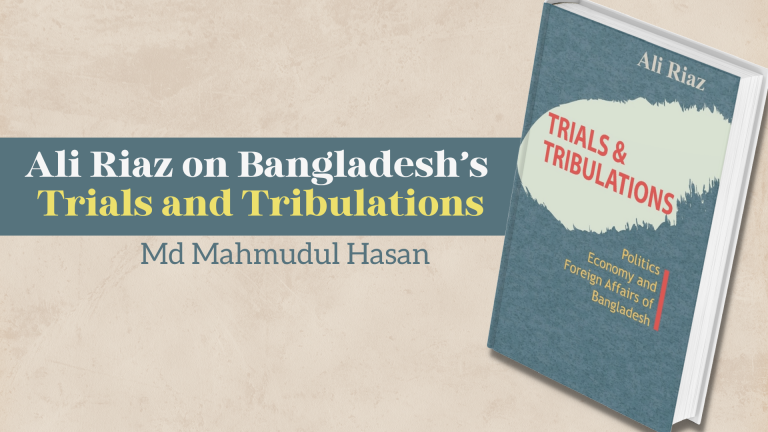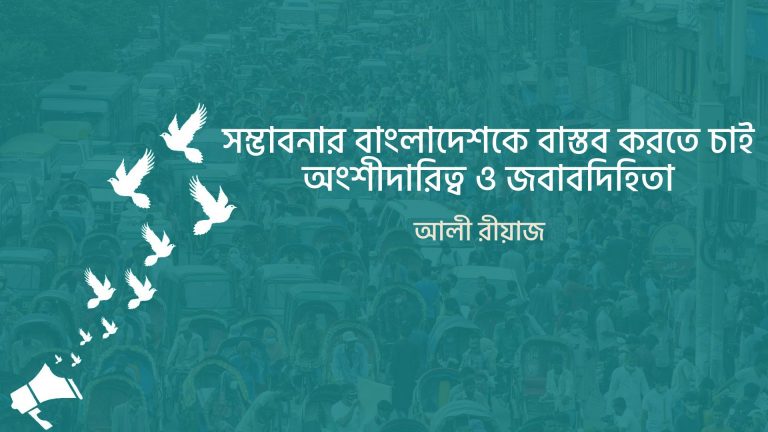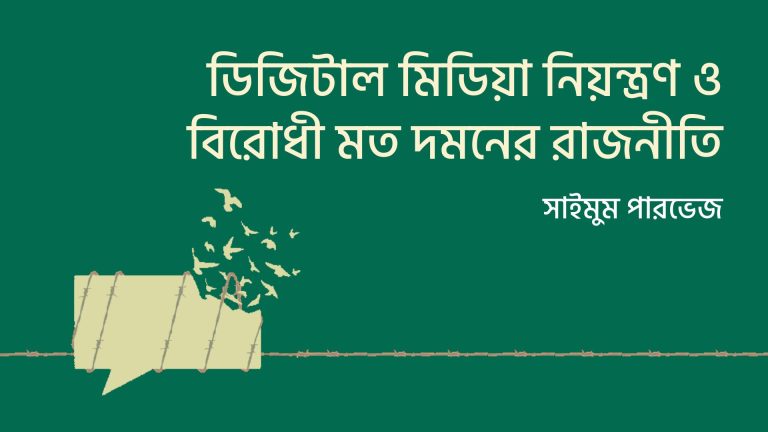THOSE of us who live outside Bangladesh remain attached to it virtually and emotionally. We regularly receive updates on the happenings in our country of origin, thanks to innumerable electronic and social media platforms. Despite that, when a fellow Bangladeshi comes to visit our host country, a common question we ask is: How is Bangladesh? Generally, responses to such questions do not add much more to what we already know. But, sometimes they contain insights which are beyond the grasp of those of us who live far away from our country.
Sometime ago in Malaysia, I happened to bump into a Bangladeshi man who was touring the country. I asked him the proverbial question: How is Bangladesh and how is its political climate?
The man heaved a deep sigh. After a long silence, he leaned behind and said in a groaning intonation: Rigged elections, corruption, gayebi mamla (lawsuits against unnamed people), stealing the country’s money through the banking sector, capital flight, persecution of people, etc are widespread and real. But these are not the worst of what the citizens of Bangladesh experience on a regular basis.
According to the man, the worst apparatus through which the people of Bangladesh are being oppressed the most is systematic and discursive falsehood.
Then he went on as follows.
Ministers and the peddlers of the government’s narrative keep lying from morning until evening, and their falsehoods are circulated by the press, especially various television channels. Parents turn on their television sets to obtain news about their country but have to listen to lies and untruths in front of their children and other family members. People of Bangladesh are suffering under a constant barrage of falsehood, distraction and disinformation. Decency, facts, truth as well as the country as a whole are collectively the victims of glaring lies regularly touted and flaunted in the media.
When it is reported in the media that the incumbent Awami League government believes in democratic values and is committed to free and fair elections, how do people of Bangladesh feel? The same people who read or watch such narratives in the media know well what was done in 2014 and 2018 in the name of election and what methods the government in Dhaka has been using to stay in power for years, undemocratically.
People’s voting rights have been snatched away, their human rights violated and their country plundered. And then, to add insult to injury, the vendors of lies seek to question people’s intelligence and mock their sense of reality by concocting and spreading half-truths and untruths and by expecting them to believe all these. This culture of lies takes a severe toll on their psychological well-being, the man added.
A host of such thoughts crowded upon my mind when I was reading a news story on August 13 involving a meeting between foreign minister AK Abdul Momen and some US officials including two visiting US congressmen Ed Case and Richard McCormick and the US ambassador in Dhaka, Peter Haas. The minister is reported to have said at the meeting: ‘We are committed to free and fair elections. We will do it out of our own efforts. We want public support. Awami League always believes in free and fair elections’.
As a Bangladeshi, I felt hugely embarrassed by these flagrant lies, veneers and misleading rhetoric uttered by our minister who does not seem to have any regard for honesty or decency. I wondered how the US politicians felt in the face of such interactions. Sadly, in his desperate attempt to make fools of the visiting US politicians and other officials, the foreign minister rendered a greater disservice to his reputation than to the intelligence of his audience. It is no brainer that the US and other developed countries maintain their own information channels to get regular updates on different countries, including Bangladesh. Therefore, it is futile to attempt to deceive foreign diplomats or politicians who are not known as poorly educated and easily gullible.
In the interest of free and fair elections and for the restoration of democracy in our country, and given the records of rigged elections (and no elections) in 2014 and 2018 under this government, its resignation before the next general election is demanded by Bangladesh’s opposition parties. In regard to this question, the foreign minister ‘asked the [visiting US] Congressmen if the US government would step down if there is a demand from the opposition there’.
I am surprised that the foreign minister could make this laughable analogy.
Has there been any election in the political history of the US which can be compared to those of 2014 and 2018 in Bangladesh under the Awami League government? Or, has there been any demand by any US opposition party for a non-partisan caretaker government for the fear of vote rigging in that country?
I am not a great fan of US foreign policy. But, in the context of Bangladesh’s relations with the superpower, I believe we as a country need to be cautious when dealing with it. We should bear in mind that millions of Bangladeshis live in the US and thousands of our students go there every year for education and employment opportunities. Needless to say, the US is the second largest source country of our foreign remittance.
On a related note, taking a gladiatorial attitude towards the US may be counterproductive for the people and government of Bangladesh, to say the least. The following anecdote may shed some light on this.
Long ago, at one of the students’ dormitories of the University of Dhaka, one weak and lean ruling party activist took issue with a student who was physically stout and robust. One evening, the latter was returning to the dormitory while the former was lying in wait for him at the hall gate. As soon as the sturdily built student reached the hall entrance, the physically weak and sickly man delivered a flying kick at his robust and muscular opponent.
The outcome was that the flying kicker lost balance, fell onto his side and pathetically dropped on the floor. He got severely injured. But the recipient of the kick was in full control over the situation, remained steady and stable, and sustained no injury whatsoever.
Therefore, it is perhaps wise not to pick a fight with an adversary for whose formidability one is not a match. This of course does not mean that we shouldn’t fight — regardless of the outcome — when it really involves our struggle for freedom and dignity.
Originally published in New Age, Aug 17,2023
